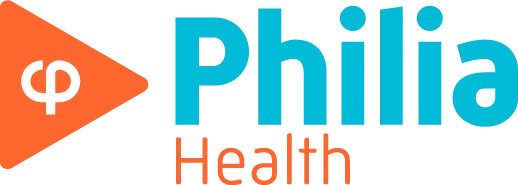
Improve Your Wellbeing. Discover Your Stress and Sleep Patterns in Just 30 Days
Unlock valuable insights tailored for autistic and neurodivergent individuals, empowering you to confidently discuss your health with providers or your NDIS team.
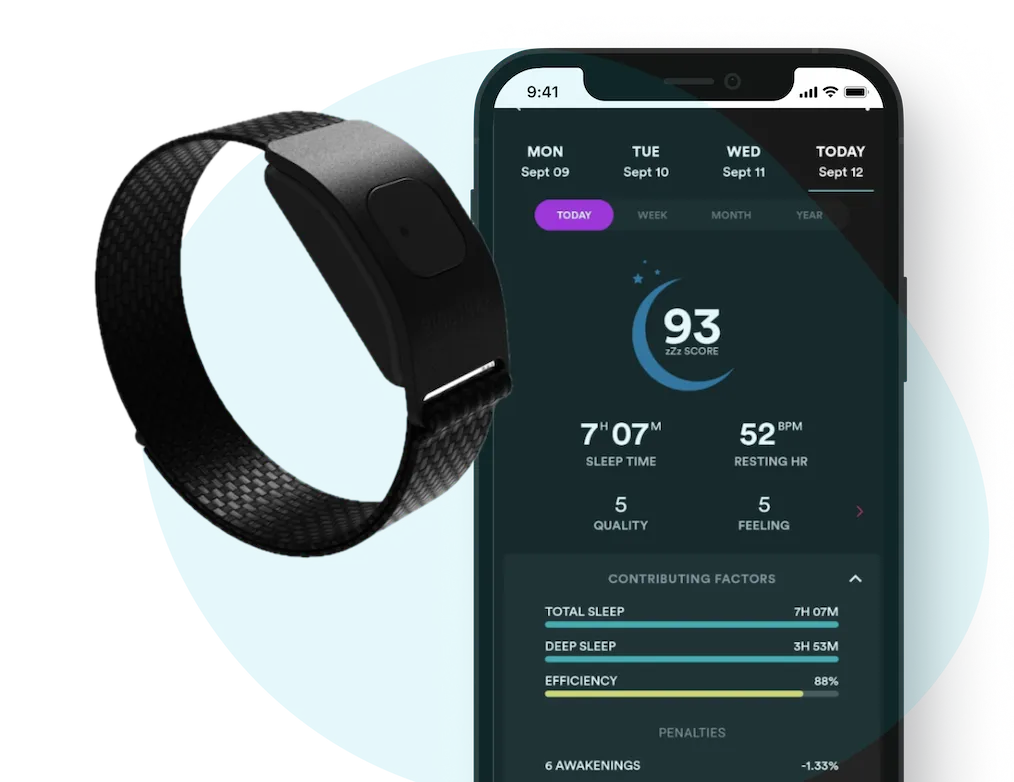
Tracking stress levels and sleep quality
Helping manage emotions and prevent challenges
Monitoring how well interventions are working
Tracking stress levels and sleep quality
Are you struggling with the following? PhiliaHealth can help.
It’s hard to track and document sleep and stress patterns.
Repeating the same information to different providers is exhausting.
It’s challenging to anticipate and manage emotional dysregulation.
Poor sleep impacts your wellbeing.
It’s difficult to focus on your own needs when caring for someone else.
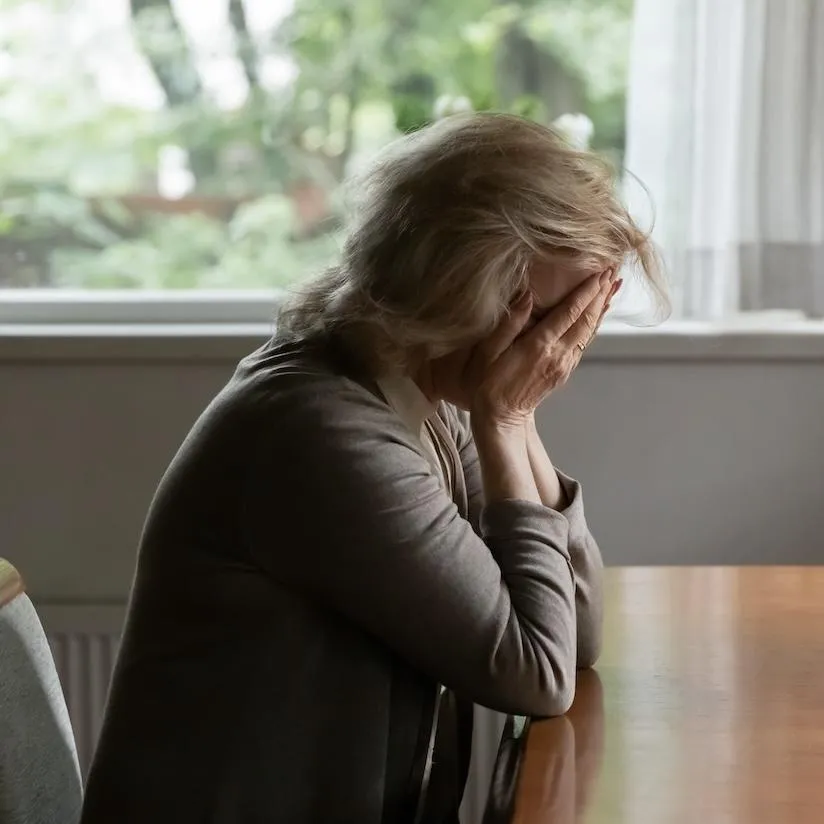
Who is PhiliaHealth for?
We're here for the autistic community, building tools together to make life easier. Sharing info is simple, we work with autism-friendly professionals and focus on what actually helps.

ADULTS & ADOLESCENTS
Autistic adults and adolescents who need help with sensing stress, anxiety and poor sleep

CAREGIVERS
Caregivers of autistic loved ones, who require more support

IF YOU'RE SEEING A THERAPIST
Individuals who are currently working with a mental health professional e.g. therapist or psychologist
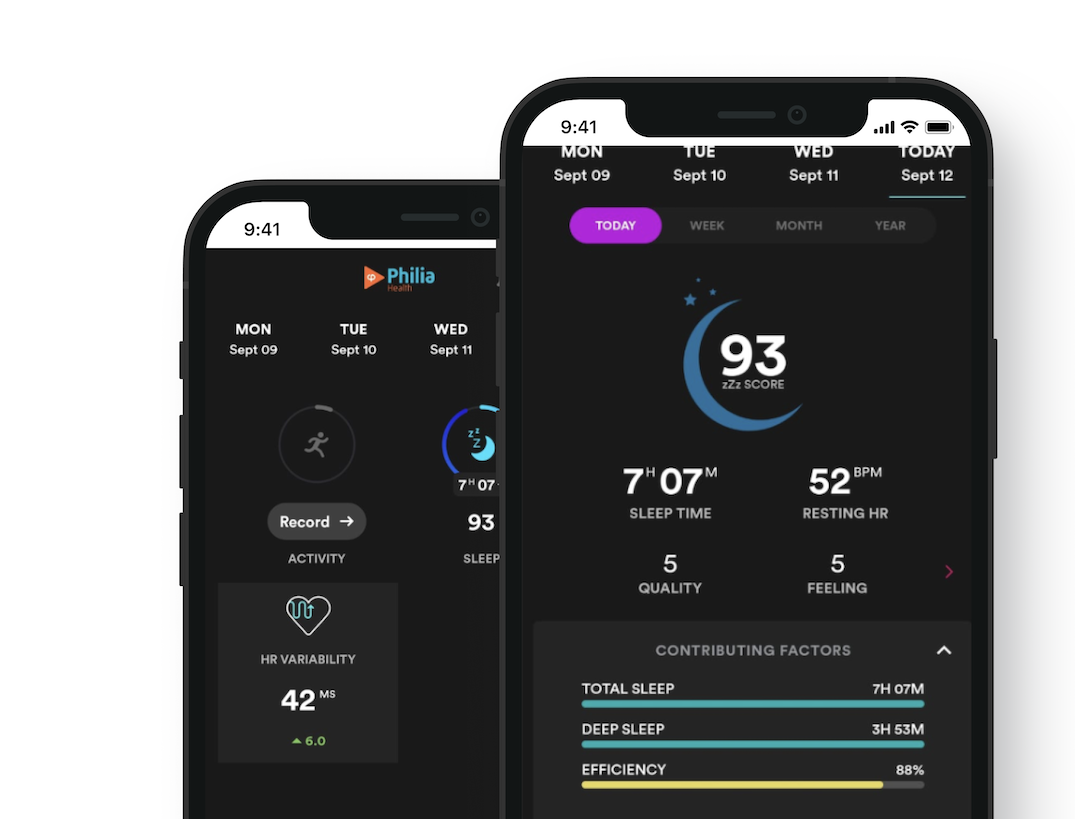
Introducing
Objective numbers to stress and sleep
Here's what you get:
A wearable band with your choice of a black nylon strap or a variety of colored silicone straps.
Mobile app with screenshot sharing
1 year’s worth of technical support on interpreting and communicating your biometrics
Exclusive Introductory Pricing: By booking a consult or sending an email, you’ll be the first to hear about our limited-time offers and payment plans designed to make the product more accessible.
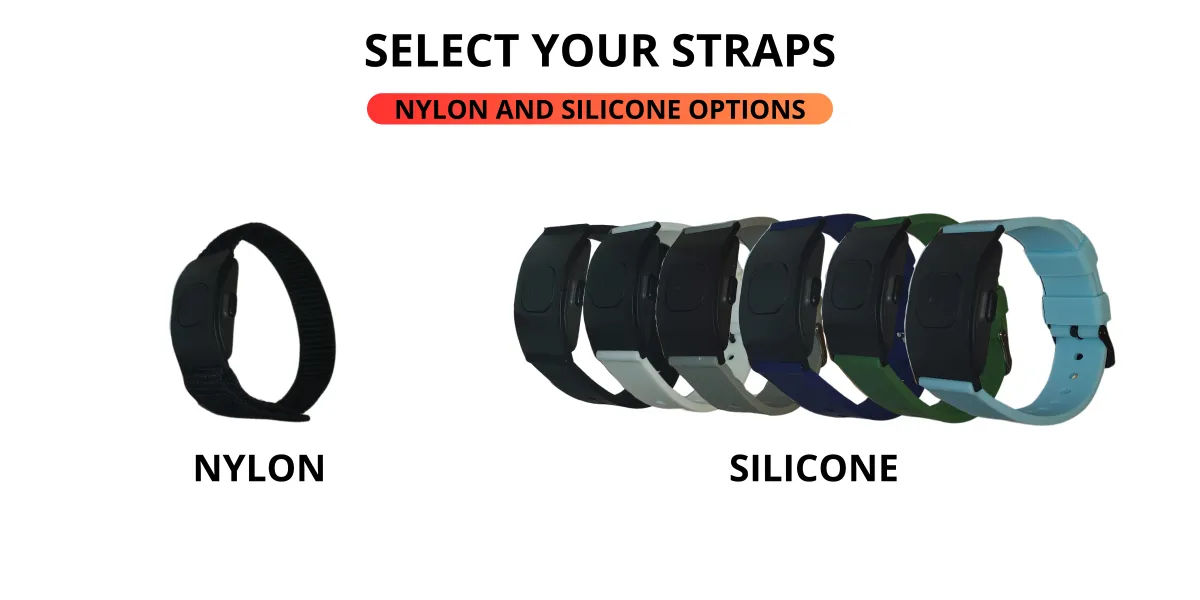
What Makes PhiliaHealth Different From Other Wearables?
PhiliaHealth offers specialised features tailored for neurodivergent individuals, focusing on advanced stress tracking and data privacy to support emotional well-being in ways traditional wearables cannot.
Wearable Comparison Chart
| Feature | PhiliaHealth | Typical Wearables (e.g., Apple, Fitbit) |
|---|---|---|
| Payment Structure | One-time purchase with optional payment plan, no ongoing subscription required | Many require perpetual subscriptions (especially for advanced features) |
| Made for Autism | Designed specifically for autistic and neurodivergent people, with no stimulating displays and focus on stress management and emotional regulation | Made for general health and fitness, not autism-specific |
| Sensory-Friendly Design | Choice of comfortable materials (textile or silicone options), minimal visual displays, and autism-informed design principles | General design, may not be sensory-friendly, especially with bright displays and complex interfaces |
| NDIS-Reimbursible | Covered by Self- and selected plan-managed plans for Australians, with documentation support | Not covered by NDIS or other disability support schemes |
| Sleep Analysis | Advanced cardiorespiratory pattern analysis for detailed sleep quality assessment, specifically designed for autism needs | Basic sleep tracking focused on general wellness |
| Healthcare Support | Provider dashboard for tracking outcomes plus easy data sharing with healthcare team | Limited sharing capabilities, primarily designed for personal use |
| Data Interpretation | Provides autism-specific context for understanding stress patterns and sleep quality | Generic wellness metrics without neurodivergent context |
| Stress Response | Directly measures fight/flight activity with proprietary technology (Coming soon) |
Choose a plan that works for you
Devices are reimbursable under plan-managed and self-managed NDIS plans.
Free Trial (Australia only)
Free
Try Before You Buy
One Month Free Trial
Introductory Pricing
$329
Upfront payment
No ongoing costs
Includes 1 year care plan
Valid for the first 30 customers
Regular Pricing
$349
Upfront payment
No ongoing costs
Includes 1 year care plan
12 Monthly Instalments
$30/month
For 12 months
No ongoing costs
Includes 1 year care plan
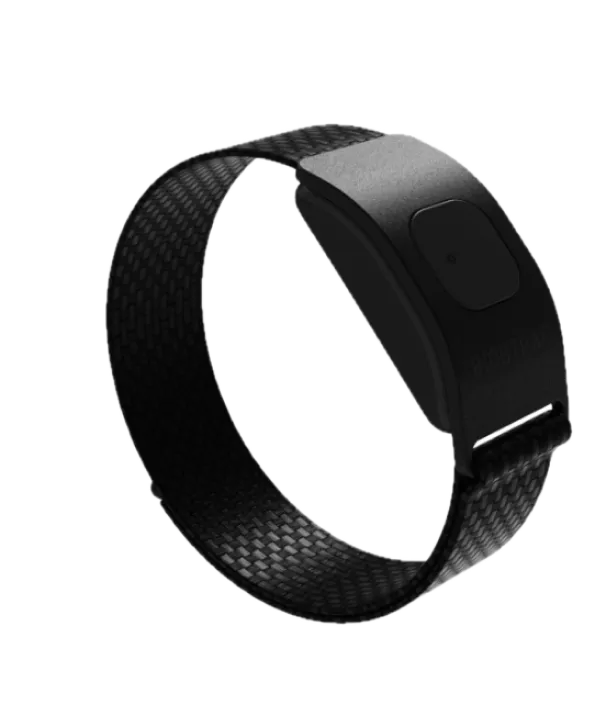
Start your 30-day free trial
100% risk free - 30 day money back guarantee.

NDIS Reimbursable

30-day Free Trial

Payment Plan Available
Our Research
The Science Behind PhiliaHealth
Scientifically-Developed Algorithms:
Advisory Board
We are supported by a board of clinicians, stress measurement experts, and autism advocates.
Ongoing Research
We are collaborating with global academics and advocacy groups to refine and improve PhiliaHealth. A current study is with RMIT University's School of Health & Biomedicine to demonstrate how our algorithms respond to transcendental meditation in 122 adults.
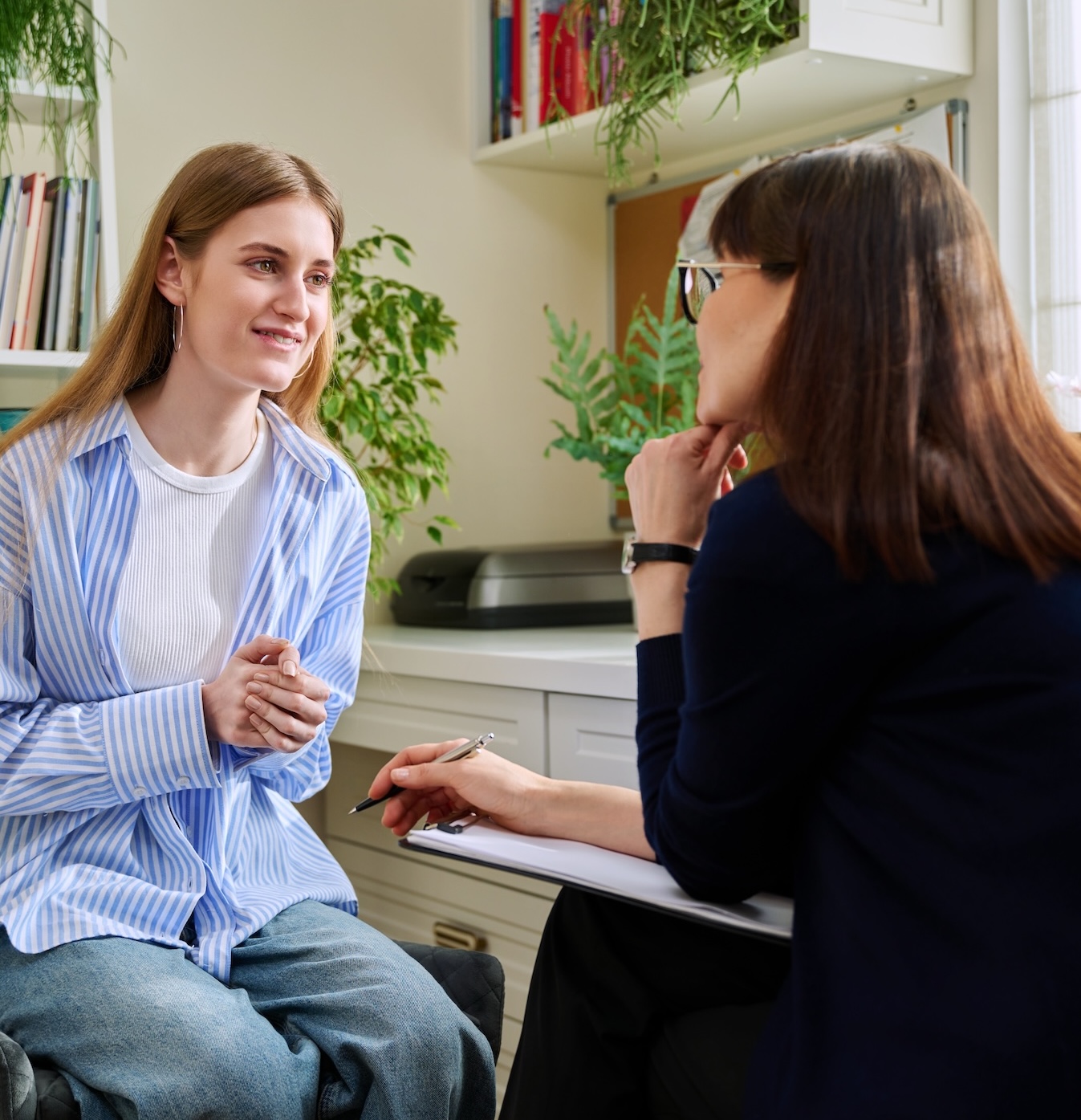
Trusted by

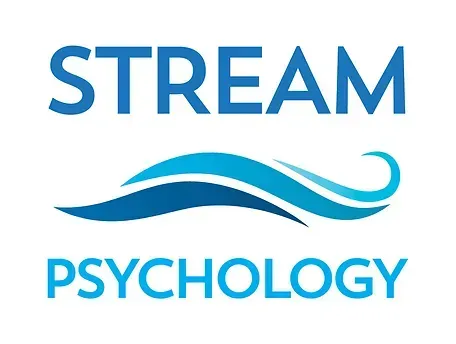


Frequently asked questions
Here are some more details about PhiliaHealth. Contact us at sales@philialabs dot com dot au if you cannot find your answers here.
What is the founders' motivation to create PhiliaHealth?
Dilpreet created PhiliaHealth because of his own lifelong struggle with anxiety. With a strong track record in research and development and a PhD in blood pressure monitoring, he realised that some people are wired differently when it comes to stress. His goal was to create something that helps people, especially those on the autism spectrum, to better understand and manage their stress.
Alex’s motivation behind PhiliaHealth is also deeply personal. Anxiety and burnout shaped his journey, leading him to join Dilpreet to help quantify 'stress' so that it can be better managed. Inspired by his autistic brother, who requires substantial support, Alex is committed to creating solutions that enhance the mental and physical well-being of neurodivergent individuals and their families.
What is the research behind your product?
Philia Labs developed algorithms to quantify the body's fight or flight and rest and digest activity with the Baker Heart and Diabetes Institute and Deakin University in Melbourne, Victoria. See this publication for more information.
See our advisory board, which consists of clinicians, stress measurement experts as well as advocates for Autism.
We are continuing to build research alliances with academics and advocacy groups across the world to refine our product and invite you to give any feedback.
Are there any advocacy organisations that have endorsed PhiliaHealth?
The short answer is: Yes, we are actively engaging with advocacy organisations and have established an advisory board of leading experts around the world. This includes Dr. Emma Goodall, an autistic individual who is also an author, keynote speaker, researcher, and a consultant in disability and education.
We are also expanding our partnerships with researchers, early adopters, healthcare professionals, and advocacy organisations who support our mission. Stay tuned as we continue to add endorsements and testimonials.
What biometrics are collected and why did you choose these?
For starters, we are processing:-Sleep Length-Sleep timings i.e. when you went to sleep and woke up-Sleep stages (awake / light / deep) as measured by movement-The percentage of time spent asleep in bed (versus time spent in bed but awake).-Disturbances are an indication of how much “tossing and turning” is occurring.-Heart rate variability (HRV), which indicates rest and digest or parasympathetic activity. HRV will indicate that the body has been able to recharge, while a lower than normal HRV indicates that the body has been under strain and needs to recover; a low 7-day average can indicate increasing anxiety.
We have chosen these metrics as clinical guidelines for poor sleep and mental well-being generally recommend measuring sleep length and efficiency as an option (Riemann et al, 2017, "European guideline for the diagnosis and treatment of insomnia." J Sleep Res 26(6): 675-700.).
Philia Labs is also developing an indicator of sympathetic arousal, which has been trialled alongside HRV. This is currently being integrated into PhiliaHealth and we will inform users when it is available.
See our white paper which is available as a high level summary and as a full report.
What does PhiliaHealth cost?
In the future, the normal price will be $349, which is inclusive of GST, and there is a separate shipping cost.
But right now, we’re excited to offer a limited-time introductory price for our new product till 31st October 2024, exclusively for our first users! To make it even more accessible, we have flexible payment plans and a 100% risk-free return policy.
To see if this product is the right fit for you and learn more about our pricing options, we invite you to book a call with us. During the call, we’ll discuss how the product can meet your needs and guide you through the best payment plan available. Reserve your spot today at the special introductory rate!
Is PhiliaHealth reimbursable by the Australian NDIS?
PhiliaHealth has already been reimbursed by NDIS for both self-managed and plan-managed participants as a low-cost assistive technology, making it more accessible for those using NDIS funding.
Philia Labs plans to become an NDIS-approved vendor, which will make reimbursement even easier. We’ll announce this as soon as it happens.
Is PhiliaHealth only for autistic people?
No, PhiliaHealth is not exclusively for autistic people, although it is designed with neurodivergent individuals (including those with autism and ADHD) in mind. The wearable technology aims to help users track and manage stress and sleep patterns, which can be beneficial for a broader range of individuals dealing with emotional regulation challenges, anxiety, and sleep issues.
PhiliaHealth’s primary focus is on providing actionable insights into stress and sleep, helping users improve their emotional well-being. While it’s particularly helpful for neurodivergent individuals, others who experience issues like anxiety, stress, or poor sleep quality can also benefit from using the product.
I have read that Measurements make me anxious. Should I still consider buying PhiliaHealth?
If you’re feeling anxious about using PhiliaHealth because it involves tracking measurements, it’s important to know that you’re not alone—many people find health tracking stressful.Here’s why you might still consider using it:
Why It Might Be Helpful:
1. Non-Intrusive Design: PhiliaHealth is designed to be low-sensory and sensory-friendly, with features tailored to individuals with anxiety and neurodivergent needs. The goal is to provide insights without overwhelming you.
2. Focus on Trends, Not Numbers: Instead of focusing on individual numbers, PhiliaHealth encourages users to observe patterns and trends over time, which may help reduce the stress of constant measurement.
3. Supports Emotional Regulation: By helping you track stress and sleep patterns, the data can support conversations with healthcare providers, leading to more targeted interventions to reduce anxiety.
4. Customisable Insights (Future): In the future, we aim for you to be able to adjust notifications and the level of detail shown in the app, which could help minimise anxiety around data overload.
Ultimately, if you’re still concerned, it might be helpful to try the product in a way that aligns with your comfort zone.
You could start by using it to track trends over time without focusing too much on individual measurements, and gradually build comfort with the process.
How do I buy the device?
Once you have decided to purchase, you can request an invoice by filling this form.
We issue you an invoice, which you can pay out of pocket or pay via NDIS (self or plan managed).
Once the invoice has been paid, we will post the device and on-board you in terms setting up and learning how to interpret and communicate your biometrics.
Can the wearable tell the time?
No, this is not a watch or smartwatch. It is a device that collects and processes high-quality biometrics.
Who sees my data?
By default, only you. You have the ability to share screenshots from the mobile device with others via Whatsapp / email / text etc.
In the future, a health provider who subscribes to Philia Labs’ platform will - only with your consent - be able to view your data and have discussions with you around your health plan.
What is the battery life like? How long does it take to charge?
For nightly use only, it can last roughly 5 nights.
For continuous use, roughly two days.
Charging takes approximately 30 minutes.
How easy is it to take the wearable on and off?
The nylon strap is velcro-fastened, while the silicone strap is a regular watch strap.
How robust are the wearables?
Currently they can be damaged like other consumer devices.
We are looking to options that can make them more robust.It does not have a screen so it cannot be damaged that way.
Are the wearables waterproof?
No, they are only splash proof. Showering with the wearables is not recommended.
PhiliaHealth is IP65 Splash Resistant, so please do not wear it when swimming or in a sauna or steam room.
Minor splashes are fine (washing hands or walking in the rain, but DO NOT submerge it in water!)
What strap options are there?
Philia Labs provides a black fabric or black silicone strap.We are working on providing silicone straps of other colours. In the meantime, you can purchase your own 18mm silicone straps on Amazon.com.
Can you export the data into e.g. Excel?
Data can be exported as csv from a web app.
Can the wearable send an alert (e.g. if the wearer’s HR is spiking, to indicate that the wearer is going into a heightened state)/ can you get live readings.
Currently no, but it is on our roadmap.
What does the wearable come with?
It comes with a strap (which can be nylon or silicone as requested by you) and a USB-C charging cable and a USB-C to USB-A adapter.
A charger is not included, but any standard charging or computer USB port will be sufficient to charge PhiliaHealth.
We do not recommend a fast charger as this can damage PhiliaHealth!
What Customers Say
Hear first-hand from our incredible community of customers.
"The Philialabs wearable has transformed how I understand and manage daily stress and overwhelm. As an autistic person with sensory differences, I often struggled to recognize mounting stress before reaching overwhelming levels. Now, I can detect subtle changes in my stress response and take proactive steps to regulate before I become overwhelmed.
What's really game-changing is the ability to track the effectiveness of different coping strategies. For the first time, I have concrete data to identify what works best for me, empowering me to take control of my nervous system regulation with confidence. This isn't just an app, it's a powerful tool for self-awareness and managing my personal well-being."
-Sean H, VIC, Australia
"I’ve been using the Philia Health device and app from Philia Labs, and it’s been a fantastic tool for me. It’s designed specifically for autistic people and is available under the NDIS consumables budget for around $300—an absolute bargain in my opinion.
It helps me track detailed biometric data, which makes it much easier to communicate with my health professionals. One of the biggest benefits for me has been accurately tracking my sleep, which has always been a challenge.
I also find it really helpful for identifying patterns and understanding my emotional state over time. I highly recommend this device to anyone on the NDIS, and I believe it could be useful for many others as well. Thank you, Philia Labs—this has made a real difference for me.
-Morgan
I've been using the PhiliaHealth app for about three months now, and I've really enjoyed how comfortable and lightweight it is to wear. It tracks the usual things like step count and sleep score, similar to a Fitbit or smartwatch.
What really stood out to me was the heart rate variability (HRV) feature, which measures how well my body recovers from stress. I started using the spot check function to see how my HRV changed before and after mindfulness sessions, but I was surprised to find that sometimes I felt even more stressed afterward.
Then I tried doing a lymphatic drainage massage using a YouTube video, and after checking my HRV again, I noticed a significant improvement—every time. Now, it’s something I’m planning to incorporate into my daily routine in the hopes of seeing long-term benefits.
-Nicole
I've been using the PhiliaHealth for the past three months and I absolutely love it. It’s helped me gain a deeper understanding of my stress levels and sleep patterns.
With the data it provides, I’ve been able to work with my psychologist to tailor a program specifically for managing stress and improving my sleep. The insights have been incredibly helpful and have made a real difference in how I approach my mental and physical wellbeing.
I’d highly recommend the PhiliaHealth to anyone looking to better understand and improve their sleep and stress—it's truly been a game changer for me.
-Bree H
I'm Craig, and as someone who is AuDHD, I've been using PhiliaHealth for several months with great success.
The device is comfortable to wear and provides accurate sleep data that I've learned to trust, allowing me to communicate objectively with my care team about whether I need to take it easy or can handle extra challenges each day.
This objective data sharing has been a game-changer for my self-management and support coordination as a neurodivergent person.
-Craig J
I’m Gillie, a late-diagnosed autistic ADHDer, and I tried the PhiliaHealth wearable to better understand how my body reflects what I’m feeling.
Despite my sensitivity to metals, the device was comfortable, and the app helped me track pain, sleep, and fatigue patterns I’d normally forget. It gave me reassuring insight—confirming that on days I didn’t feel well, my body was showing it too.
-Gillie
Jennifer Nanda, a former critical care nurse and veteran, shares how a faceless wearable from Philia Labs helped her manage PTSD and autism symptoms.
The device provided objective data for her health care providers and enabled proactive support in daily life.
She praises its simplicity, comfort, and effectiveness, putting it above other wearables. Have a look at Jennifer's full testimonial here: https://youtu.be/gpPOnjD99is
I’ve been using a wearable device and its app for several months now. At first, I wore it almost all the time, but later switched to mainly using it at night because of some skin irritation, while still doing regular spot checks. The data gave me eye-opening insights into my sleep, which could fluctuate a lot, and showed how my mood and stress lined up with changes in my body. Seeing spikes during times of anxiety or stress felt validating and helped me understand what really affects my wellbeing. Overall, the device has helped me refine my habits, manage my medications better, and improve my day-to-day life.
-Connor D.
The Philia Labs device is really comfortable and surprisingly light on the wrist. Getting accurate autonomous nervous system feedback has been so helpful. Now I am starting to sleep better, as I can work out what is triggering my stress and poor sleep and what is supporting a good nights sleep. Life changing for an AuDHDer with chronic insomnia.
Dr Russell Fayers , Occupational Health Physician, Aruna Rehab
The Philia Labs device is really comfortable and surprisingly light on the wrist. Getting accurate autonomous nervous system feedback has been so helpful. Now I am starting to sleep better, as I can work out what is triggering my stress and poor sleep and what is supporting a good nights sleep. Life changing for an AuDHDer with chronic insomnia.
-Dr Emma Goodall, SA, Australia
Unlike smartwatches, the wearable from Phila Labs is super low profile, comfortable and does not get in the way, during the day or at night. The HR measurements are best in class and very reliable. I was not familiar with HRV metrics but after looking at the clinical evidence and measuring nightly HRV for several weeks, I now trust HRV as a great indicator of stress, fatigue and recovery.
-Pierre L, AuDHD, 47
I have experienced several bouts of intense stress over the past few years. In an attempt to manage my stress levels, I looked towards meditation. That is where the PhilliaHealth came in useful.
As a data wonk, I did not want to go by just how I felt. I also wanted to know that key vitals (e.g. HRV, Respiration Rate) were also showing signs of improvement. I generally use PhiliaHealth once in the morning, doing a 10-minute meditation just before beginning work to help me focus for the upcoming day, and then in the evening as part of my wind down routine before heading to sleep. I keep it on at night to also track my sleep metrics. When new periods of stress hit, using features such as Spot Check serve as a useful reminder to slow things down and focus on the bigger picture.
-Mervin G
“The PhiliaHealth wearable has provided clear and precise information about the amount and quality of sleep I have been getting. I have learnt about how my body is recovering from the day to day stresses due to features like heart rate variability.
I have been able to share this data with my GP and psych team and have been referred for a formal sleep study to diagnose issues picked up by the wearable.”
-Jacinta M, autistic woman.
"We are very excited at the prospect of expanding the use of PhiliaHealth to our clients in 2025. Being able to track sleep patterns and levels of anxiety of those at our centre, enables us to plan appropriate interventions quickly and accurately. Because it is easy to wear, those of our clients who are dealing with emotional regulation challenges, anxiety and sleep issues can have their information recorded comfortably. Reading and interpreting the recorded data maximises the opportunities for our staff to quickly determine appropriate and immediate interventions."
-Simone Anderson, Director, Helping Hands Centre
"Due to my ASD/ADHD, I was surprised how easily I was able to wear the PhiliaHealth wearable - I barely felt it all! I found the heart rate, sleep time data and HRV especially useful - it helped me better judge when to go to bed, and whether I'd recovered effectively during sleep from the stress of the prior day/s (and when I should be sleeping more). Overall the data collected by PhiliaHealth was transformed into easy to understand figures/graphs in the app, especially useful in helping regulate my sleep behaviours."
-Rodger W, AuDHD
About us
Meet our team
Our mission is to bridge the gaps in care, foster understanding, and provide tools that celebrate neurodiversity. We believe in the power of collaboration, centring autistic voices in every step of our design process. Through technology and human connection, we strive to unlock opportunities for autistic individuals to thrive and lead fulfilling lives.
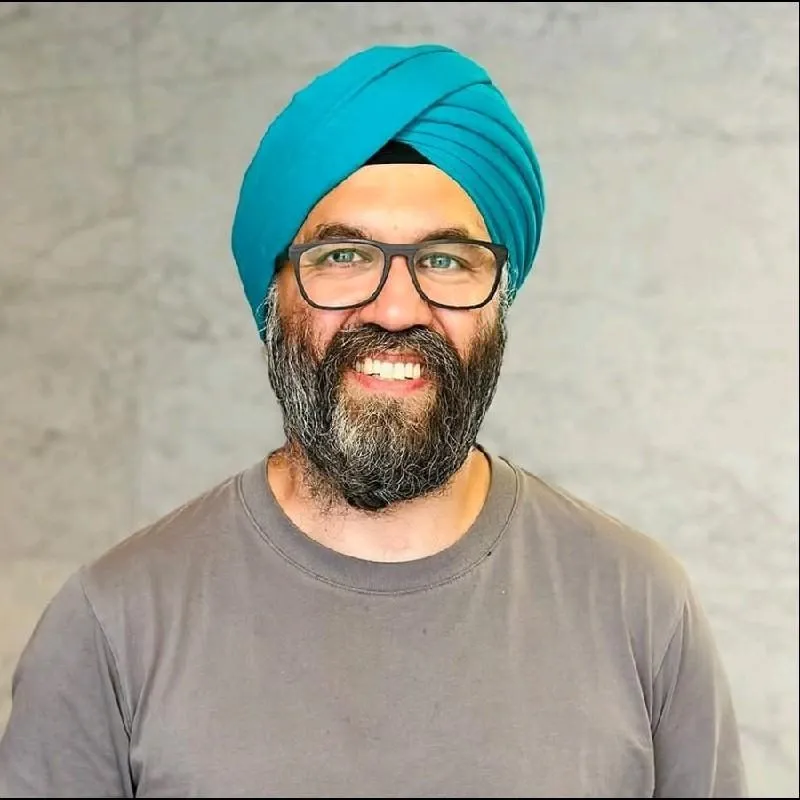
Dilpreet Buxi, PhD
Chief Product Officer and co-founder
I identify as a neurodivergent individual. I’ve battled with anxiety for much of my life, which led me to pursue a PhD in blood pressure monitoring. This inspired me to found Philia Labs, where we develop wearable technology to help others manage stress according to their needs.

Alexander Senior
Chief Product Officer and co-founder
Anxiety and burnout shaped my journey, leading me to join Philia Labs in 2018 to help quantify stress. Inspired by my autistic brother’s needs, I am dedicated
to creating solutions that support the mental and physical well-being of neurodivergent individuals and their families.

Yee Lin Loke
Chief Marketing Officer
I lead a small, flexible team that ensures that the benefits of PhiliaHealth are communicated correctly to different stakeholders. I have lots of experience working with NDIS-related projects, so I completely understand how important it is to reach neurodivergent individuals.

Emma Goodall, PhD
Strategic Advisor - Autism
I focus on creating policies and programs that empower neurodivergent individuals to advocate for themselves and access services more effectively. I advise Philia Labs as I believe their approach to measuring the body's stress has great potential for the well-being of neurodivergent people!
Get Started for Free Today!
Free Trial is available to Australian residents only.
Purchasing options are available to customers outside Australia.
Take Control of Your Sleep and Well-Being Today!
Interested? Complete the form below to learn more and qualify for a 30-day free trial!
A conversation with you using text / email / phone / video ensures you get the most out of your free trial.
We’ll explain the key features and ensure everything is set up properly so you can start experiencing the benefits immediately.
Note that free trials are only available if you are a resident of Australia.
If you are outside Australia, you are welcome to look at purchasing options.

